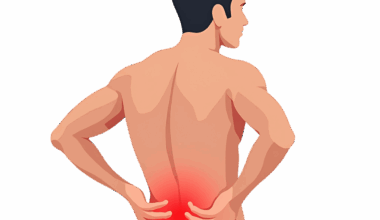Balancing Macronutrients for Effective Rehabilitation
Effective rehabilitation is crucial for individuals recovering from injuries. One key aspect that significantly impacts recovery is nutrition, specifically the balance of macronutrients. Macronutrients consist of carbohydrates, proteins, and fats, each playing a vital role in rehabilitation. Carbohydrates act as the primary energy source for the body, vital for muscle repair and energy during physical therapy. Proteins are essential for tissue repair and rebuilding muscle mass lost due to inactivity during injury recovery. Finally, healthy fats contribute to hormone balance and overall health during rehabilitation. Incorporating the right proportions of these macronutrients into a recovery diet is essential. This balance varies based on activity level, type of injury, and individual health status. A registered dietitian can aid in creating a personalized nutrition plan for optimal recovery. Additionally, it’s important to consider hydration, as water plays a crucial role in nutrient transport and absorption, affecting the healing process. Overall, focusing on specific dietary habits can enhance rehabilitation outcomes, leading to a quicker, more effective return to normal activities.
The Role of Carbohydrates
Carbohydrates are often misunderstood and unfairly demonized in various dietary discussions. In the context of rehabilitation, however, they are essential. When recovering from an injury, the body requires energy to heal and restore functionality. In this case, carbohydrates serve as the primary energy source to fuel workouts and rehabilitative exercises. Research suggests that athletes and active individuals should consult with nutrition professionals to determine their carbohydrate needs. Typically, 45% to 65% of daily caloric intake should come from carbohydrates. Sources rich in good carbohydrates include whole grains, fruits, vegetables, and legumes. These food items provide not only the energy needed for daily activities but also essential vitamins, minerals, and fiber. Including carbohydrates post-exercise can boost muscle glycogen reserves, which is crucial for recovery. Furthermore, whole food sources contribute to overall well-being, enhancing recovery through improved digestion and metabolic health. Hence, prioritizing quality carbohydrates during rehabilitation is paramount for anyone looking to maximize recovery effectiveness.
Alongside carbohydrates, proteins significantly contribute to effective rehabilitation. Proteins are the building blocks of our body, vital for repairing tissue and creating new muscle. Adequate protein intake after surgeries or injuries is crucial to minimize muscle loss. It supports the body’s natural repair mechanisms, so it’s essential to include high-quality protein sources in rehabilitation meals. Protein requirements might range from 1.2 to 2.0 grams per kilogram of body weight, influenced by the extent of injury and physical activity levels. Good protein sources include lean meats, fish, dairy, legumes, nuts, and seeds. Including a variety of protein sources ensures all essential amino acids are consumed. Additionally, spreading protein intake evenly across meals can maximize muscle protein synthesis. Research underscores the importance of protein around workout times to support recovery. Supplements may be considered when dietary intake is insufficient, but whole foods are always preferable. Adequate protein consumption can mitigate the impact of inactivity caused by injuries, helping return individuals to their previous activity levels more rapidly when recovery protocols are followed.
Healthy Fats and Their Importance
While fats are often viewed negatively in terms of health, they play an important role in the recovery process. Healthy fats support cellular functions and help the absorption of fat-soluble vitamins, which are crucial during rehabilitation. Fats are a source of essential fatty acids, such as omega-3 and omega-6, which have anti-inflammatory properties. This can play a role in reducing inflammation and promoting healing post-injury. Patients undergoing rehabilitation should aim for healthy fats, including sources like avocados, olive oil, nuts, seeds, and fatty fish. Including these fats in meals can aid recovery, supporting overall health. The quality of fats consumed is essential. Avoid trans and processed fats, as they can exacerbate inflammation. Instead, prioritize fats that provide health benefits while aiding in calorie needs post-injury. Moreover, balancing omega-3 and omega-6 fatty acids is important too. Thus, fostering an understanding of how to incorporate healthy fats into meals helps optimize dietary strategies during rehabilitation, promoting quicker healing and recovery.
In addition to understanding macronutrient distribution, meal timing can greatly affect rehabilitation outcomes. Eating at intervals throughout the day promotes nutrient availability, helping to maximize recovery. Consuming a meal or snack with carbohydrates and protein soon after exercise can enhance muscle glycogen replenishment. Delaying nutrient intake can lead to suboptimal recovery, prolonging soreness and fatigue. A strategic approach includes planning meals around physical therapy or rehabilitation sessions to optimize energy levels and nutrient uptake. Integrating nutrient-dense foods into these meals ensures a continued supply of necessary nutrients throughout the healing process. Regular meals help stabilize blood sugar levels, reducing cravings, and promoting overall health. This is especially crucial for individuals experiencing stress due to injury. A well-timed meal plan also supports mental well-being during the recovery phase. The psychological aspects of recovery should not be underestimated. A nutritious meal helps provide energy, reducing feelings of lethargy and boosting motivation. Thus, focusing on meal timing alongside a balanced macronutrient intake proves essential for effective rehabilitation.
Hydration’s Role in Rehabilitation
Hydration is a cornerstone of nutrition often overlooked during recovery. Adequate water intake is essential for transporting nutrients, regulating body temperature, and ensuring optimal muscle function. Dehydration can hinder the healing process, leading to slower recovery times, increased fatigue, and decreased performance. Athletes and individuals undergoing rehabilitation should continually monitor hydration status. Establishing a hydration plan can help maintain fluid levels throughout the day. Water consumption needs vary by individual and their activity levels, but a general guideline is to aim for at least eight 8-ounce glasses daily. Factors such as climate, level of physical activity, and overall health can influence these requirements. Additionally, incorporating hydrating foods like fruits and vegetables can aid overall hydration status. For those undergoing physical therapy, fluids should be consumed before, during, and after exercise. Electrolytes may also be necessary for post-exercise recovery, especially if engaging in intense physical activities. Maintaining hydration can enhance overall energy levels, cognitive function, and emotional well-being during the rehabilitation journey, supporting better recovery outcomes.
It is essential to tailor nutrition strategies based on individual needs and rehabilitation goals. Recovery doesn’t follow a one-size-fits-all approach; rather, it requires careful planning around personal circumstances and health conditions. Consulting a registered dietitian or a sports nutrition specialist can provide personalized plans that consider an individual’s injury type, metabolic rate, and personal preferences. These professionals can create evidence-based dietary recommendations ensuring that macronutrient intake meets energy demands and recovery goals. Monitoring and adjusting these dietary adjustments throughout the rehabilitation journey can be beneficial in achieving optimal outcomes. Furthermore, a comprehensive recovery strategy integrates nutrition, physical therapy, and mental well-being, recognizing that these factors are interconnected. Hence, collaboration among healthcare and nutrition professionals forms a holistic approach to recovery. Keeping track of dietary intake also plays a crucial role in understanding what works best for the individual, adjusting based on recovery progress. Lastly, fostering community or support networks can further aid motivation during the rehabilitation process, contributing to a successful recovery experience.
Conclusion: The Comprehensive Approach
In conclusion, balancing macronutrients plays a key role in effective rehabilitation. Ensuring an optimal intake of carbohydrates, proteins, and healthy fats is crucial for recovery. Each macronutrient contributes uniquely to healing, energy, and overall health. Hydration and meal timing are equally important, and personalized nutrition plans tailored to individual needs can significantly enhance recovery outcomes. Engaging in such a comprehensive approach optimizes not only physical recovery but also mental well-being. Rehabilitation can be a challenging journey, but focusing on nutrition can ease the process and promote quicker recovery. Continuous support from healthcare professionals can solidify this balance, empowering individuals to navigate their recovery journey more effectively. Adjusting macronutrient balance according to progress ensures that individuals remain on track toward their recovery goals. Remembering the critical role of nutrition in rehabilitation can lead to a successful outcome and restore confidence in one’s physical abilities. Fostering an understanding of these nutritional principles can serve individuals throughout their lives beyond injury recovery. Thus, making informed dietary choices lays a solid foundation for ongoing health and performance.


